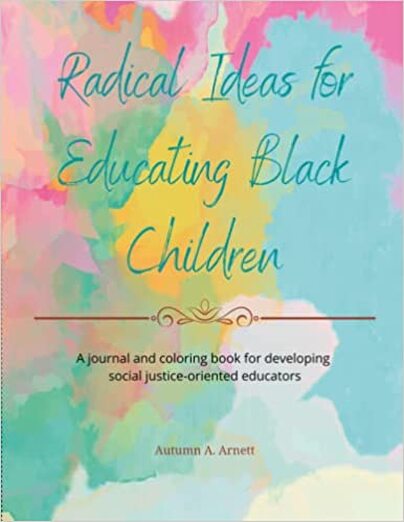Radical Ideas For Educating Black Children
A journal and coloring book for developing social justice-oriented educators
|
Intended to serve as a prequel to my forthcoming book of the same name, Radical Ideas for Educating Black Children encourages educators of all races to reflect on the biases and beliefs that exist within themselves and their schools that perpetuate disparities in educational outcomes, gifted and talented representation, and discipline disparities.
The journal also asks educators to reflect on their own experiences and how those have shaped them as educators. Quotes from Black people throughout history -- from Langston Hughes and Zora Neale Hurston to Serena Williams and Jay-Z -- seek to exemplify the brilliance that can exist anywhere with the right nurturing. It is my goal that through thoughtful engagement with this resource, educators and others who work with children will identify strategies they can immediately apply towards a more equitable and antiracist approach to engaging with children on a regular basis. |
Let’s stop calling it an achievement gap
|
Between 1980 and 2005, 45 states were involved in lawsuits around equity of funding and adequacy of education provided to all students in the state. This investigation could have included any cities in America, and the themes likely would have been the same: Lower funding and resources, disproportionate numbers of teachers and school leaders who do not look like the students they serve, debates over the public’s responsibility to provide fair and equitable education for all students in the jurisdiction, implicit biases from the top to the bottom and a resegregation of schools in America.
Integration for Black families was never about an idea that Black students were better off if they could be around White students, it was about the idea that Black students would be better off if they could have access to the same education that white students had — but residential segregation still enables de facto school segregation, when it isn’t coded into policy. For the overwhelming majority of Black students, cities and districts and states have failed to uphold their basic responsibility to provide a quality education for every child. Based on interviews with people on the ground in each city who are dedicated to the work of securing a quality education for all children, but especially children of color, the book seeks to identify strategies that are working in each city to bridge the gap and increase both K-12 achievement and higher ed attainment. |


